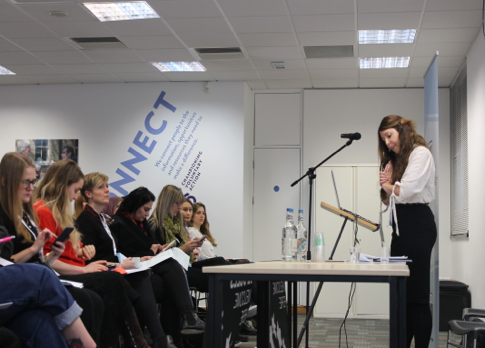Climate Refugees
- Adila Mir
- Dec 29, 2019
- 2 min read
In light of sustainability week at UCL, UCL STAR held a bake sale to raise funds for the national charity UK STAR! We raised close to £260! The theme was based around 'climate refugees', but what does that really mean?

Although the term 'climate refugee' is not defined under international law, it is often used to refer to those who are displaced due to natural disasters and climate change. The rise in sea levels, droughts and frequent cyclones are examples of natural disasters causing devastation to people around the world.
Global warming caused by the burning of fossil fuels has caused much damage to the Earth's climate leading to an increased frequency of natural disasters. This has led to significant problems in not only causing displacement but also exacerbating the issues faced by refugees fleeing from their homes.
One such example is 46-year-old fisherman, Hawali Oumar from Baga, Nigeria. Oumar fled Baga for Lake Chad, Chad after his neighbourhood was burned by Boko Haram. However, since the 1960s, Lake Chad has shrunk by 90 percent due to climate change, leaving the surrounding population to suffer from desertification, deforestation and drought. Oumar's efforts to find safety and stability had only been worsened by the effects of climate change.
Like Oumar, many others fleeing violence in their home countries are often at the front line of the harmful effects of climate change. Refugees are often the main victims of climate change and natural disasters and thus their efforts to find safety and security are only elongated and worsened.
Take the Rohingya refugees in Bangladesh for example. Heavy monsoon rains, floods and tycoons pose the biggest threat of destruction to the refugee camps. These refugee camps are one of the only places of refuge for the Rohingya and many refugees are forced to relocate, time and time again, in the face of such dangers.
However, in most cases, displacement caused by climate change and natural disasters is usually internal rather than resulting in movement of persons across international borders. Despite this, this crisis is still a concerning one as, in 2018 alone, 17.2 million new people were displaced as a result of disasters occurring in 148 countries, thus showing the extent to which this is a global crisis.
Displacement caused by climate change is not exclusive to a continent, country or region. It is often the most vulnerable of society that must deal with the negative effects of climate change. Let us not forget that climate refugees are one of them.
Written by Adila, 2019.
Here are some photos from the bake sale!







Comments